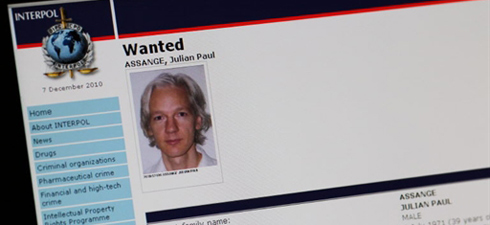The case of Julian Assange will draw attention to newly introduced European procedures which are intended to provide a more effective means of combating cross-border crime. Accused of rape in Sweden, he was arrested on 7 December in the UK, and in all likelihood it is only a matter of time before he is extradited to Stockholm.
New procedures have made it much more difficult for individuals who are wanted in one European jurisdiction to escape prosecution by moving to another, to the point where many commentators have remarked that the drive to combat crime is one of the goals of the European Union. However, it is important to point out that this view is based a misinterpretation of the European project.
With the removal of border controls within the EU, Europe’s citizens have benefited from increased freedom of movement, but the liberty to cross un-policed borders has also opened up new possibilities for criminals. It is in this context that the reinforcement of the drive to combat crime is first and foremost a consequence – rather than an objective – of European integration. Having said that, there is no denying the growing need for cooperation between police forces and justice systems, particularly in the field of human trafficking.
A high-profile case that is likely a milestone
The issue is a complex one because the direct exercise of state power across the internal borders of the EU raises the question of the protection accorded to the rights of citizens, and in this regard much remains to be done. For example, the sole purpose of the European Arrest Warrant (EAW) is to facilitate the rapid return of a suspect to the jurisdiction of another EU member state. Very little attention is paid to the legal rights of suspects involved in such cases.
As such, the EAW presupposes that all EU member states have full confidence in the judicial systems of their European neighbours. For example, the condition of "double criminality" — under which a suspect can only be extradited if the alleged offence is in fact considered to be a crime in the jurisdiction where he is arrested — has now been set aside.
This high-profile case is likely to become a milestone in the development of this legislation: in particular with regard to simple rules to safguard suspects’ rights — and this is not just a matter of legal interpretation, but also a question of legal aid. That is not to say that Julian Assange does not have the means to take charge of his legal defence, but that it is important to point out that all of Europe’s citizens must have total confidence in the protection of their legal rights in every jurisdiction of what is now an increasingly integrated EU.
Was this article useful? If so we are delighted!
It is freely available because we believe that the right to free and independent information is essential for democracy. But this right is not guaranteed forever, and independence comes at a cost. We need your support in order to continue publishing independent, multilingual news for all Europeans.
Discover our subscription offers and their exclusive benefits and become a member of our community now!












